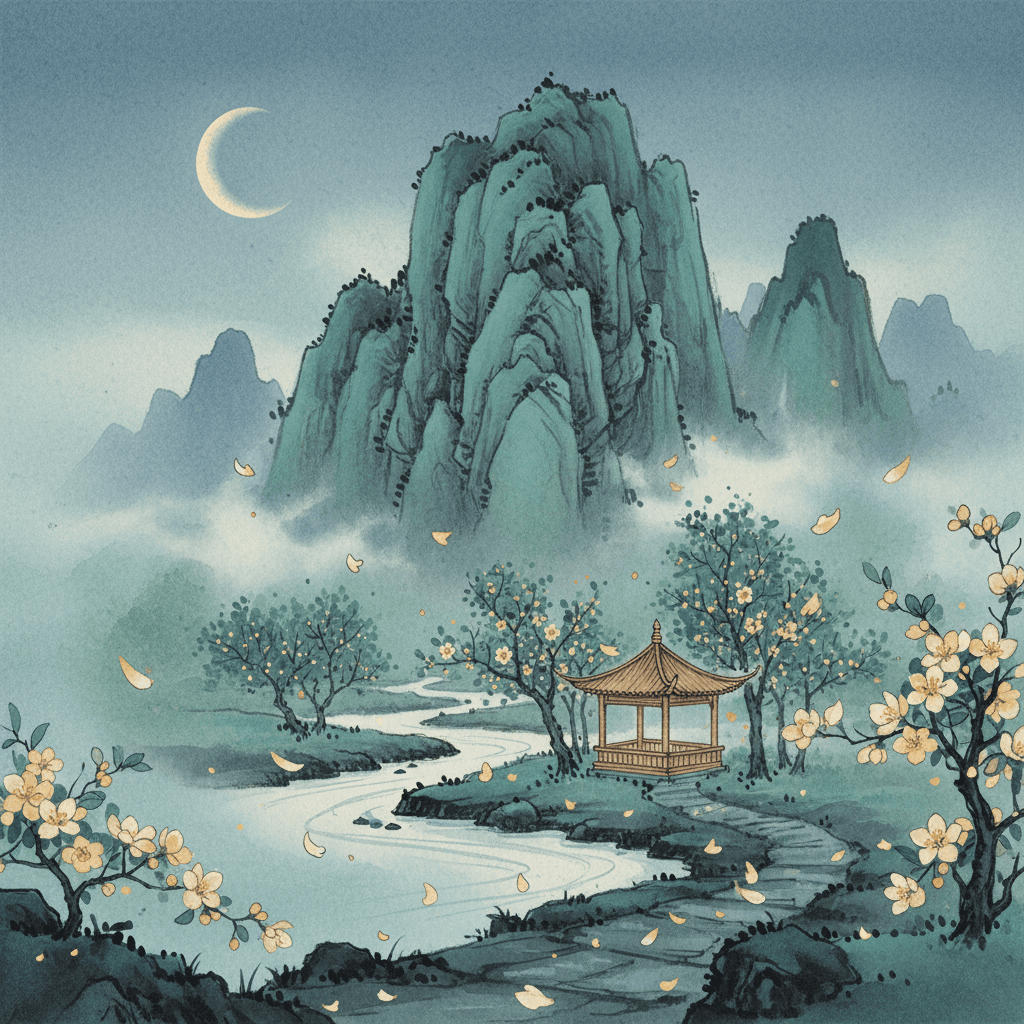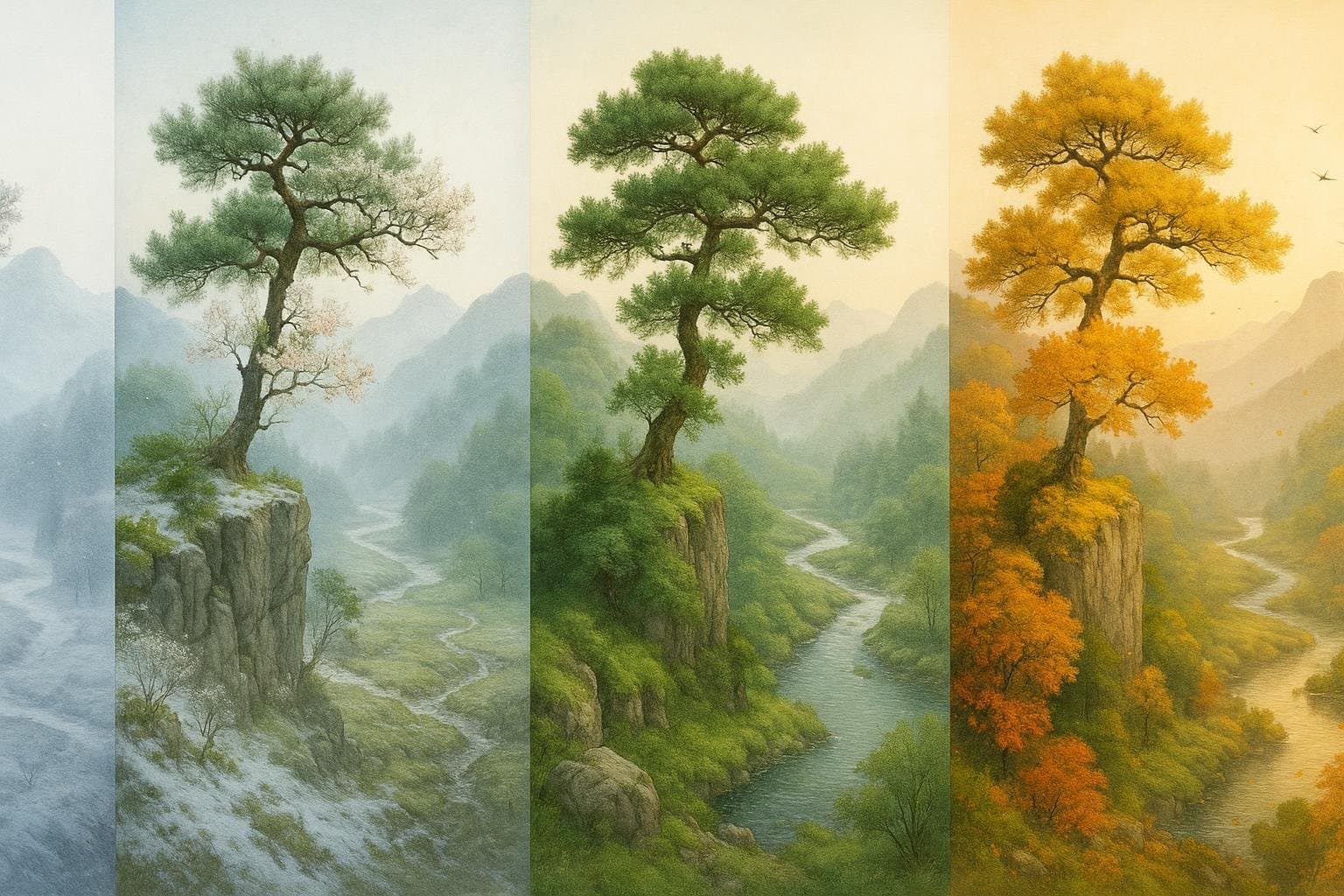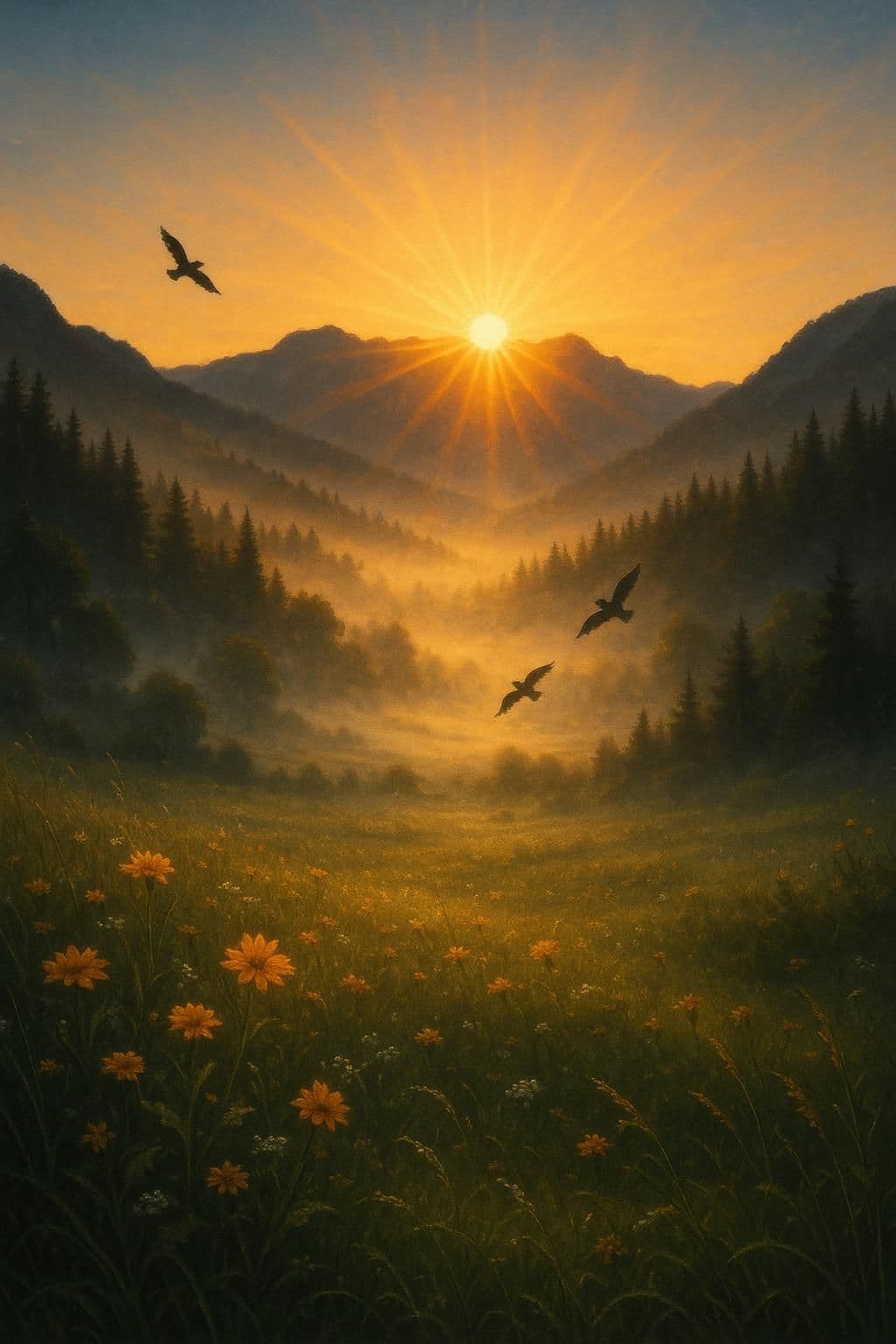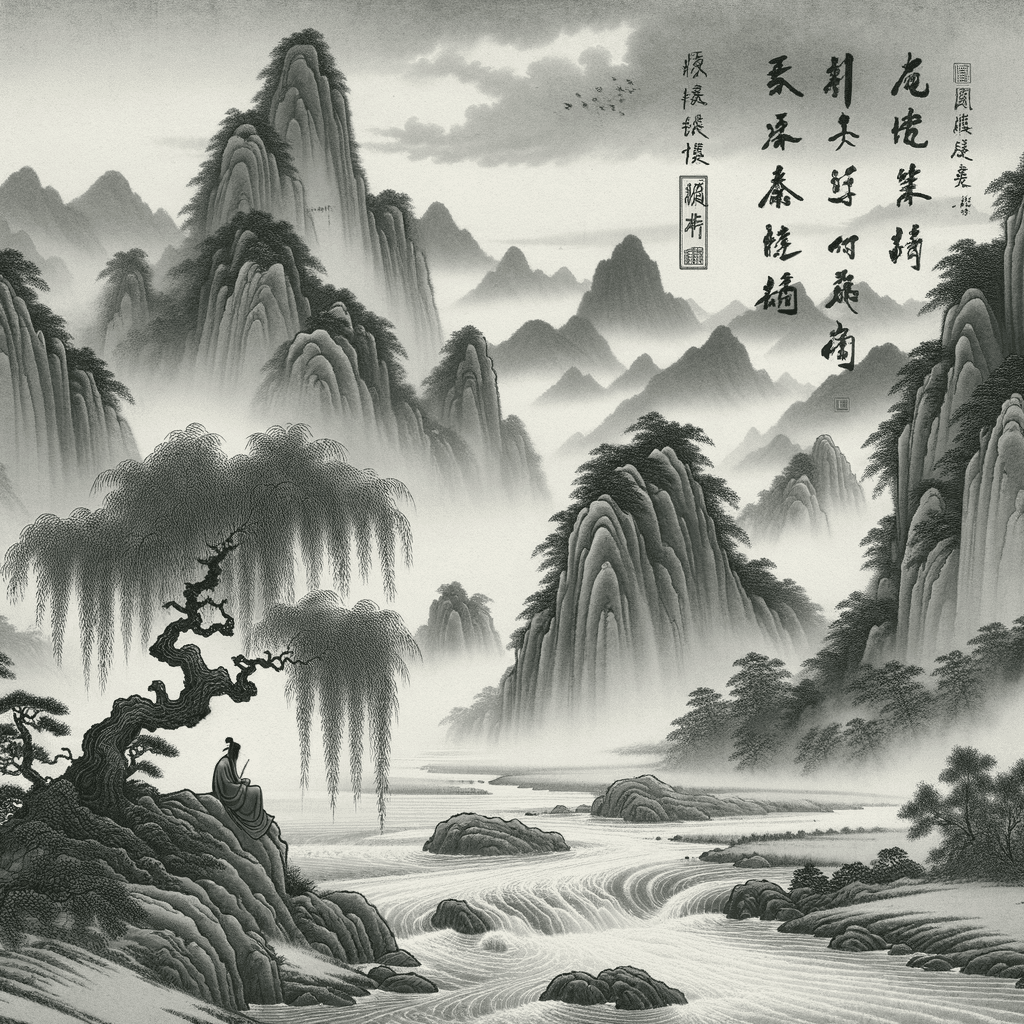Wang Wei
Wang Wei (701–761) was a Tang dynasty Chinese poet, painter, and government official. He is known for spare, nature-focused poems with Buddhist themes that influenced landscape poetry and ink painting, and the quoted lines reflect his quiet observation of spring mountains and falling osmanthus.
Quotes by Wang Wei
Quotes: 4

Hearing Petals: Wang Wei’s Art of Stillness
Translators render gui hua as osmanthus, laurel, or cassia; while modern osmanthus blooms in autumn, the poem’s mountain is called spring. Rather than an error, many read this as layered seasonality or as a broader laurel family reference attested in Tang usage. Some versions simply say “flowers fall” to preserve the mood. In any case, the sensory core remains: a flower famed for fragrance is heard, not smelled—folding scent into sound, and season into timeless quiet. [...]
Created on: 10/6/2025

Patience as the Quiet Engine of Hope
At first glance, patience sounds passive, yet the injunction to practice it recasts waiting as work. To wait well is to align one’s actions with a horizon that has not arrived, refusing both panic and paralysis. In this light, hope becomes a verb: a disciplined stance that sustains steady effort when outcomes remain uncertain. [...]
Created on: 8/10/2025

Choosing to Rise: The First Step Toward Light
Transitioning from metaphor to action, 'choosing to rise' invokes the conscious decision to leave behind passivity. This is not a mere reaction to circumstances but a proactive stance. Ancient texts like the Bhagavad Gita emphasize that awareness and resolve precede true progress. Thus, Wang Wei’s words remind us that intention is the catalyst that sets personal evolution into motion. [...]
Created on: 6/23/2025

Alone in a Foreign Land - Wang Wei
He conveys the emotional intensity of longing and homesickness through the imagery of the festive season, suggesting that the joy others feel during these times starkly contrasts with his own sorrow and yearning. [...]
Created on: 6/4/2024